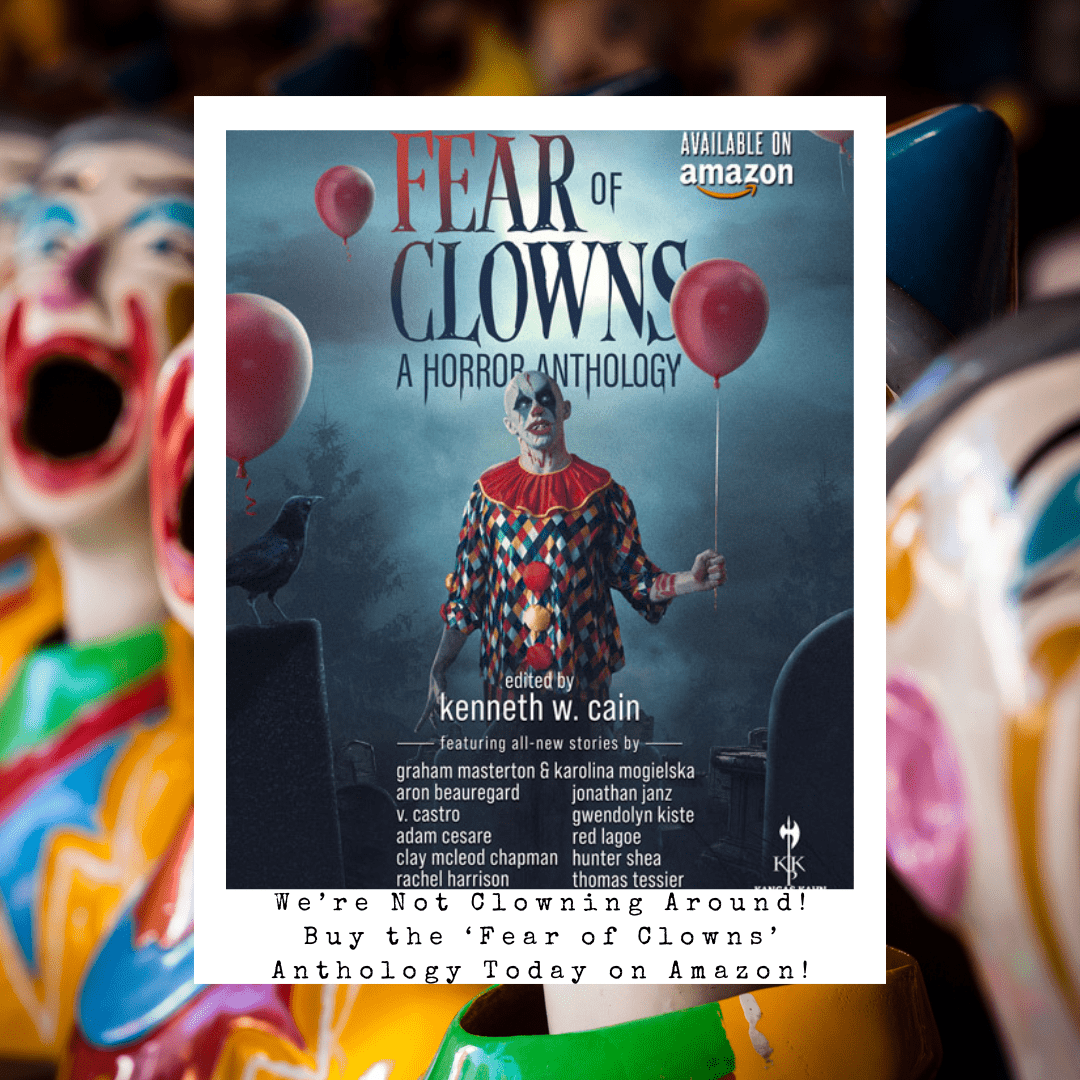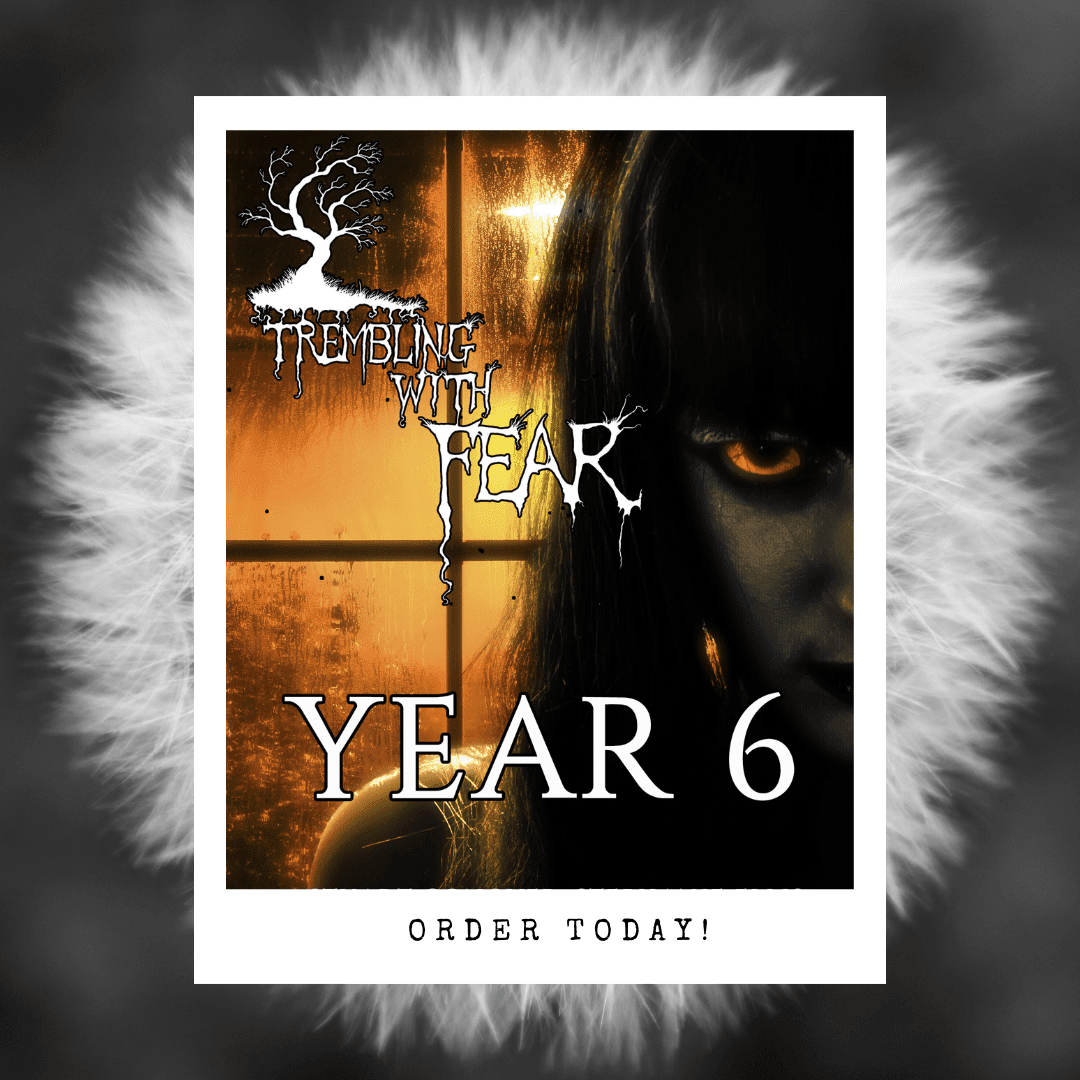5 Things This Podcast Host Needs Horror Authors to Know
5 Things This Podcast Host Needs Horror Authors to Know
By: Ashe Woodward
If you’re a horror author, you’re likely more comfortable scribing alone in the silence of the blackened night. So it may seem like a direct gash in the face when it seems like everyone is telling you to “put yourself out there,” in the light of day, on a podcast, with an extroverted host spewing questions at you.
I get it. I’m an author too.
But I’m also a podcaster, and you should know that being a guest on a respected podcast can do a lot for you. Not only is it great for exposure and book sales but it’s a way to build a sustaining brand around you and your future work.
Hopefully, that gets your attention and lures you from your divining den for a moment for me to tell you not only why authors need to reach out to podcasters, but also how to make the most of your efforts with these daywalkers.
Multiple surveys of podcast listeners tell us that they tend to read more than the general population. What that means is that the podcast audience is already primed to be listening for their next spooky read, and that could be yours! And with a little effort on your part, it can be very productive and lucrative.
But, on my show, The Spooky Scholars Podcast [https://open.spotify.com/show/1VqKYyRtmnuV3hglC8SPjp], I’ve hosted a number of authors. And I have to tell you, honestly, very few of these interviews have been what I would deem as successful.
And maybe not all the blame is on the interviewee; I am guilty of asking “bad” questions now and then, I’ll admit. But if you’re looking to promote your work and use podcasting to gain exposure, there are ways of taking responsibility, on the author’s end, to make the interview feel less like dental surgery and more like a step in the right direction for your brand as an author.
- Find the right podcast.
As I said above, a podcast interview can help you build your brand. And especially if you’re writing horror or sci-fi, you’re in luck––there are hundreds of podcasts in your niche. If you’re just getting started with reaching out to podcasts, you could look for shows that fit your particular genre or subgenre but that have a smaller audience right now. This way, you’re doing each other a favour, really. You get to practice your pitch (which you should have polished) and interview skills. In return, the host gets great content for an episode.
If you’re ready to jump in with confidence, don’t be afraid not only to pitch yourself and your book, but also your specific area of expertise. The more variety of topics you can discuss, the more the host will be interested in having you share with their listeners.
And don’t be afraid to reach out to non-literature based podcasts. For example, if you’re writing steam-punk, why not reach out to an engineering podcast or a history podcast that might be interested in your inspirations for the technology in your book? Or, if you just wrote something that took a bunch of research, reach out to a podcast that would love to hear about your process and what you learned. Just be sure you have a lot to say and you can back up your ideas or refer them back to your story. It’s a great way to expand your fanbase.
- Don’t just talk about your book.
Horror podcasts are everywhere, but, honestly, most of them focus on film. So, as I’ve already said, when you do find a podcast that would benefit from your perspective on a certain subgenre or theme, be the “expert” that they can refer to. Have a list of horror films that relate (even slightly) to your own book.
Two episodes on my own show that went really well for me in this respect, are here for you to check out.
The first is with Wendy Dalrymple. [https://spotifycreators-web.app.link/e/jy46U0lcDRb ] Listen to how Wendy talks about her work, yes, but also how her knowledge about her genre leads our conversation towards “pink horror” as a whole, both literature and then film as well. This makes a great episode for the listener because they’re learning more than just about the author––they’re learning about a whole new idea to engage with.
Another is with Alex Mell-Taylor. [https://spotifycreators-web.app.link/e/680BVPZUrRb ] Alex came on the show to discuss her non-fiction, but the episode goes a lot further into her larger opinions. She does bring all of this back to some of the themes in her novel eventually, but her presence is more like that of an expert on the themes found in her work. This approach is more in-depth and more general at the same time, and it may take some thought and practice doing this with your own work. But as you listen to the episode with Alex, keep in mind that it really makes the listener want to read what kind of world this very thoughtful person has put together.
- Sound good.
Nothing makes a listener skip an episode faster than bad audio, and in 2025, there’s really no excuse. You can get a more than decent microphone for under $100. Here’s one I recommend: https://ca.hyperx.com/collections/microphones/products/hyperx-solocast-usb-microphone?variant=41025211170976&_gl=1*w95pk8*_up*MQ..*_gs*MQ..
Mind your space. Try to choose a place with good acoustics and test this before the interview. Choose an interview spot that will be quiet and undisturbed (as much as possible) for the duration of the interview. It hurts my heart to have to cut important things that you say because I hear a toilet flush or your cat’s bell as it jumps in front of your mic!
And keep in mind some podcasts also publish video, which means you should also look good. Have a bright area and interesting (but not too distracting) background. A bookshelf with your work facing forward is a common choice for authors.
- Listen. To. The. Podcast!
The best way to prepare to be on any podcast, hands down, is to listen to interviews the host has done in the past. In your initial communication, you can even ask them to direct you to interview episodes they’ve done and trust me, they’ll be thrilled you asked.
From the episode you’ll learn the types of questions you can expect, how the host speaks and how fast the interview might move. This is all helpful for you feeling the most prepared and confident you can be in the episode.
Also, you’ll likely get ideas from listening to other authors about what they say that you liked and what you think they might have done wrong or where they missed opportunities to talk more about their book.
A lot of people make the mistake thinking that going on a podcast is just a fun chat. It can be that, sure, but it can also be an incredible opportunity. So if you put in a little effort, you can make it a much more successful and productive conversation. Plus, the podcaster will know you’ve put in effort as you refer to the show in a knowledgeable way. Case in point, if a guest comes on my show and pronounces my name wrong, I know they haven’t prepared fully because I say my name clearly at the beginning of every single episode.
Keep in mind that a podcaster is also taking a chance on you. They’re the ones spending time putting the show together, editing and promoting. The very least you can do is give their show a “follow,” download a couple episodes and leave a review for support.
- Post your episode.
As I mentioned above, podcasters are making your episode a reality. You can show up and just talk off the top of your head and be done. But the podcaster has at least a couple hours of edits, show note-writing and then at least a few more hours of promotional work, like making social media posts and descriptions.
I can’t tell you how many times I’ve had an author come on the show and then I see nothing on their social media about the episode that I put hours of work into to promote them on my show.
It’s a punch in the gut.
After that, I have no interest in further promoting their work to my listeners.
A good guest will post the episode, probably more than once, and maybe even throw more support for the podcast in future posts.
Remember Wendy Dalrymple that I mentioned before? Wendy posted the episode we did together several times on all her socials. And, every once in a while, she recommends the podcast or new episodes I release. In turn, I just casually mention her new releases on new episodes all the time and featured one of her books in my book club for the show. By the way, notice how I’m mentioning her in this article now too?
Podcasters are content creators and they’re counting on a two-way exchange. When you don’t share the episode or the promotions they create, you haven’t held up your end of the social contract.
It’s not a good look.
And it basically makes doing the interview a waste of time since you’re not going to be able to count on the connection with the podcaster or their listeners in the future. But when you do support the podcast and the podcaster, they will likely do the same, making promoting your future work a lot easier––it’s like having a podcaster on retainer.
BONUS
One last thing to keep in mind (and, sorry, it’s kind of a bummer) is that not all podcasters are going to read your book beforehand. Some will, some won’t. I do try!
But most won’t.
What you can do to remedy this slightly is in the initial conversations with a host, share an excerpt or a chapter of your work (or the whole thing if you’re feeling generous). This will help the host know more about your writing and then they’ll be able to create more tailored, in-depth questions. That’s a win for you since you are the authority on your work, it will make you look really smart. Yay!
Secondly, it shows you’re serious. When an author shows that they’re making an effort to really share their work with me, it shows that they’re really invested in the outcome of the episode. It’s important to see an author isn’t just using the show for their own gains, but as an experience from which you both can benefit. That’s a collaboration I can get behind.
All in all, the best advice I can give is to get started. Reach out to podcasters to see who fits your message and appreciates your professionalism. See who is ready to collaborate with you on promoting yourself as an expert guest that podcasters and listeners will love.













